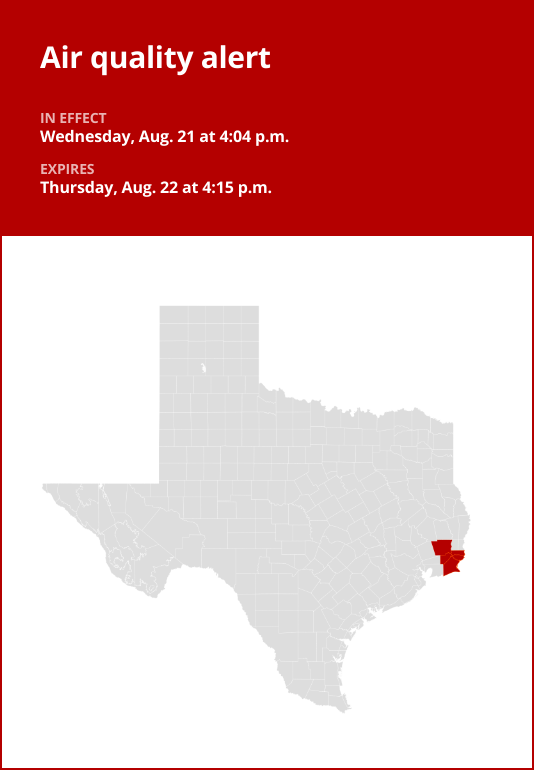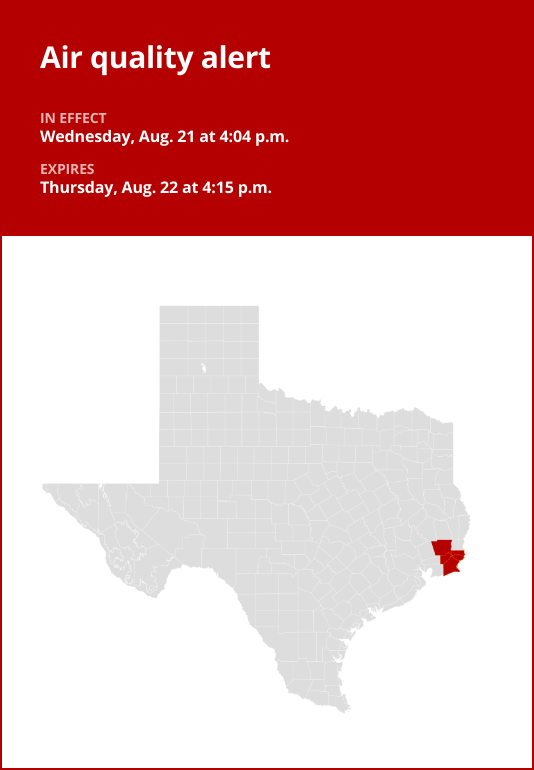Air quality alert for Jefferson and Orange counties Thursday
Published 3:12 pm Wednesday, August 21, 2024
An air quality alert was issued on Wednesday at 4:04 p.m. in effect until Thursday at 4:15 p.m.
“The Texas Commission on Environmental Quality is forecasting a Code Orange Air Quality Alert, from 8 a.m. to 8 p.m. Thursday. The Air Quality Index indicates that Ground Level Ozone will be at the Orange level, which means Members of sensitive groups may experience health effects. The general public is not likely to be affected,” according to the National Weather Service.

Guidance for air quality alerts: Insights from the NWS
When an air quality alert pops up on the radar, deciphering its implications is crucial. These alerts, issued by the NWS, come with straightforward yet essential guidance to ensure your safety:
Trending
Retreat indoors whenever feasible:
Whenever possible, seek refuge indoors, especially if you grapple with respiratory concerns, health issues, or belong to the senior or child demographic
Minimize outdoor exposure:
When venturing outside is unavoidable, restrict your time outdoors solely to essential activities. Reducing exposure is paramount.
Scale back pollution-inducing practices:
Be conscious of activities that contribute to pollution, such as driving cars, using gas-powered lawnmowers, or relying on motorized vehicles. Curtail their use during air quality alerts.
Trending
A no to open burning:
Resist the urge to burn debris or any other materials during an air quality alert. This practice only adds to the air pollution problem.
Stay informed:
Keep yourself well-informed by tuning in to NOAA Weather Radio or your preferred weather news outlet. Staying in the loop empowers you to make informed decisions regarding outdoor engagements during air quality alerts.
Prioritize respiratory health:
If you have respiratory problems or underlying health conditions, exercise extra caution. These conditions can increase your vulnerability to adverse effects from poor air quality.
By adhering to the recommendations from the NWS, you can enhance your safety during air quality alerts and reduce your exposure to potentially harmful pollutants. Stay vigilant, stay protected, and prioritize your health above all else.
Source: The National Weather Service






